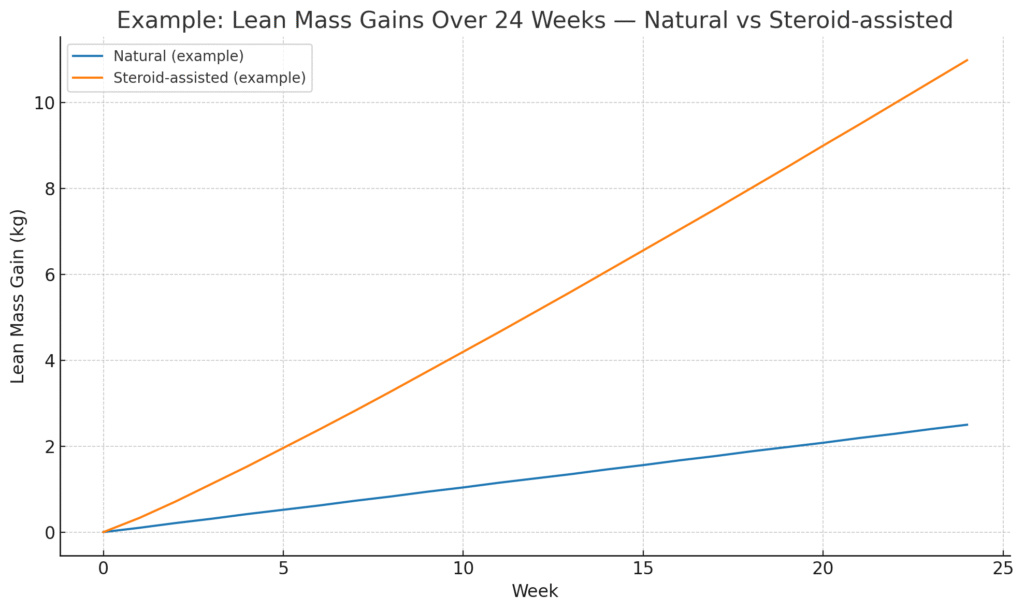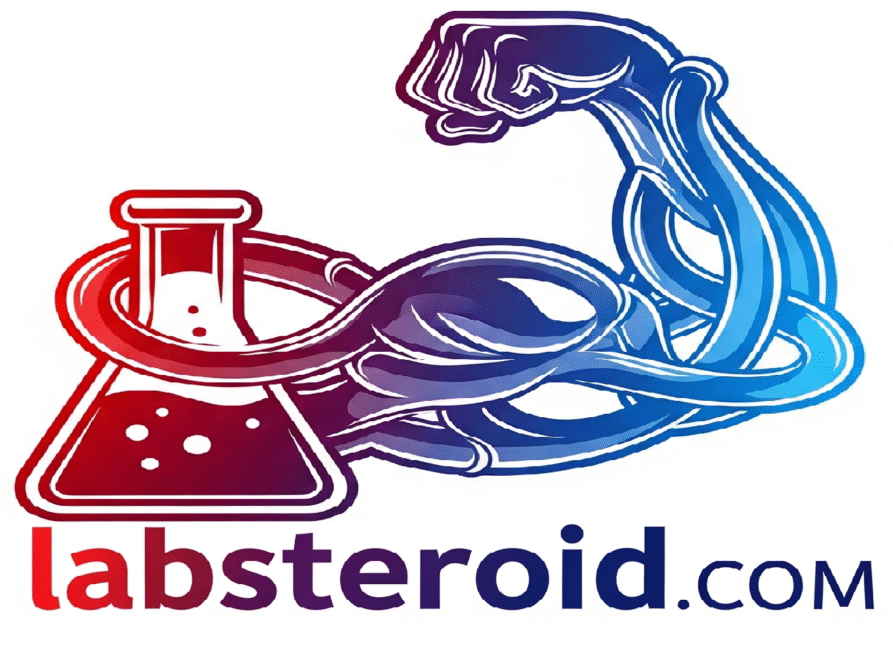Steroid Blog
💪 Steroids vs Natural Muscle Growth: What’s the Difference?
When it comes to building muscle, the debate between natural training and steroid-enhanced training has been going on for decades. Some swear by hard work, diet, and patience alone, while others believe in the transformative power of anabolic steroids. But what’s the real difference—scientifically and practically—between the two?
1️⃣ Understanding Natural Muscle Growth
Natural athletes rely solely on training, nutrition, recovery, and genetics. Muscle growth (hypertrophy) occurs when muscle fibers are stressed and repaired through resistance training. However, there are natural limits—often called genetic potential—to how much muscle a person can build naturally.
Typical Natural Gains:
- First year: 10–25 lbs of lean muscle (if training & diet are perfect)
- After 3–5 years: Muscle gain slows dramatically—often less than 2 lbs/year
- Recovery time: Slower, meaning fewer workouts per week without overtraining
- Strength: Progress is gradual and can plateau for long periods
2️⃣ How Steroids Change the Game
Anabolic steroids, like Testosterone Propionate, directly increase protein synthesis, reduce muscle breakdown, and enhance red blood cell production 🩸—which improves oxygen delivery to muscles for better endurance and faster recovery.
Steroid-Enhanced Gains:
- First cycle (12 weeks): 15–25 lbs of lean muscle
- Faster recovery: Training 5–6x/week without overtraining
- Strength jumps significantly in weeks, not months
- Increased vascularity, fullness, and muscle density
📌 Scientific Proof:
Research from Bhasin et al., 1996 showed that men taking testosterone without training still gained significantly more muscle than those training naturally without steroids. Combining steroids with resistance training multiplied gains beyond natural limits (Study link).
📊 Real-World Comparison Chart
| Factor | Natural Training | Steroid-Enhanced Training |
|---|---|---|
| Muscle Gain Speed | Slow ⏳ | Very Fast 🚀 |
| First-Year Gains | 10–25 lbs | 15–25 lbs in 12 weeks |
| Recovery Time | 48–72 hrs | 12–24 hrs |
| Strength Increase | Gradual | Rapid |
| Muscle Density | Moderate | High & “3D” look |
| Endurance | Natural | Enhanced by RBC boost 🩸 |
3️⃣ Real-Life Example
Let’s take Alex, a 25-year-old beginner:
- Natural path: After 1 year of disciplined training and eating, he gained 18 lbs of muscle. Strength improved slowly, and he plateaued after year two.
- Steroid path: Another beginner, Mike, ran a moderate Testosterone Propionate cycle with proper diet and training. In just 12 weeks, he gained 20 lbs of lean mass, hit personal records on all lifts, and recovered faster between sessions.
The difference? The timeframe and ceiling of progress. The chart below supports the reality

4️⃣ Why Steroids Also Improve Endurance
Steroids like testosterone increase red blood cell count, allowing more oxygen to reach muscles during workouts. This is the same principle behind altitude training for athletes—but steroids do it faster and more effectively 🏋️♂️.
📌 A 2025 study found testosterone supplementation not only boosted muscle mass but also improved cognitive focus, reaction time, and training motivation (Source).
5️⃣ The Bottom Line
Natural training works—but it’s slow and limited by genetics. Steroid-enhanced training breaks through natural barriers, delivering faster, bigger, and more dramatic results.
If you’re considering a safe and effective first step, Testosterone Propionate is one of the most popular starter compounds thanks to its quick results and manageable side effects when used correctly.
👉 Check Testosterone Propionate (Test100) here

⚠️ Disclaimer
This content is for informational purposes only and does not encourage illegal or unsafe steroid use. Always follow local laws and consult a licensed medical professional before starting any hormone or anabolic therapy.
Frequently Asked Questions (FAQ)
For more information on anabolic steroids and their effects, visit our FAQ page.
Contact Us
If you have further questions or need personalized advice, please contact us.
Reviewed by Dr. Aaron
This article has been reviewed by Dr. Aaron, PhD, a specialist in endocrinology and pharmacology. For more insights, visit Dr. Aaron’s Instagram.

